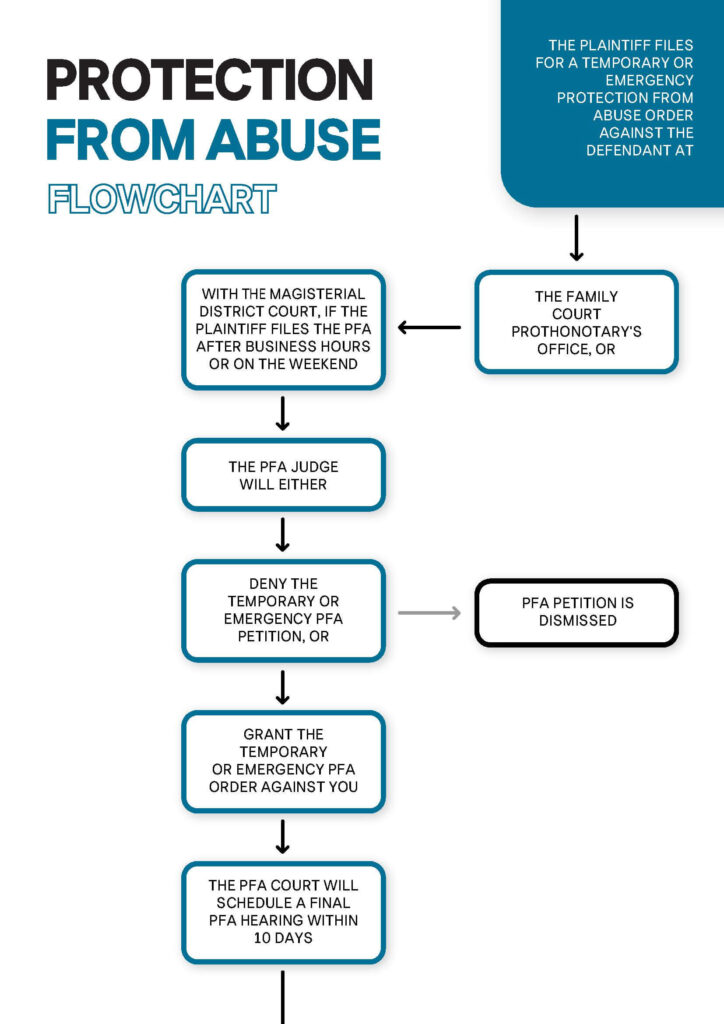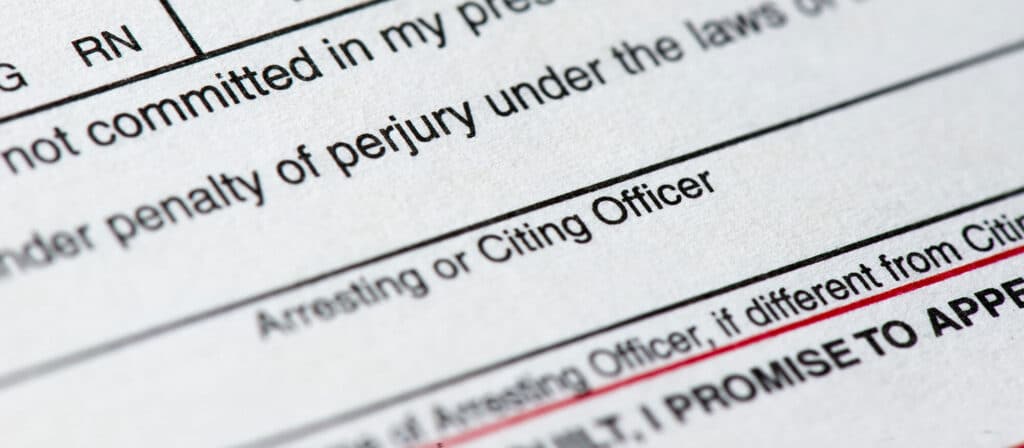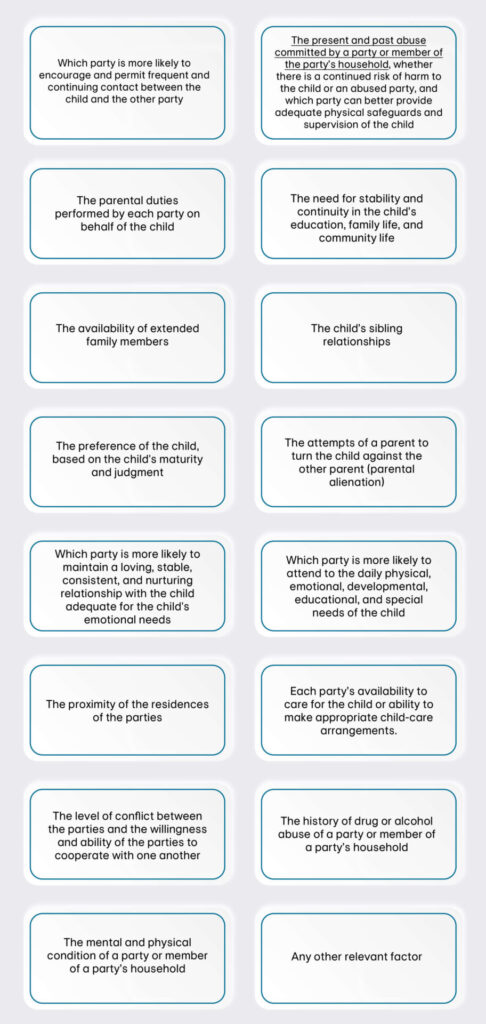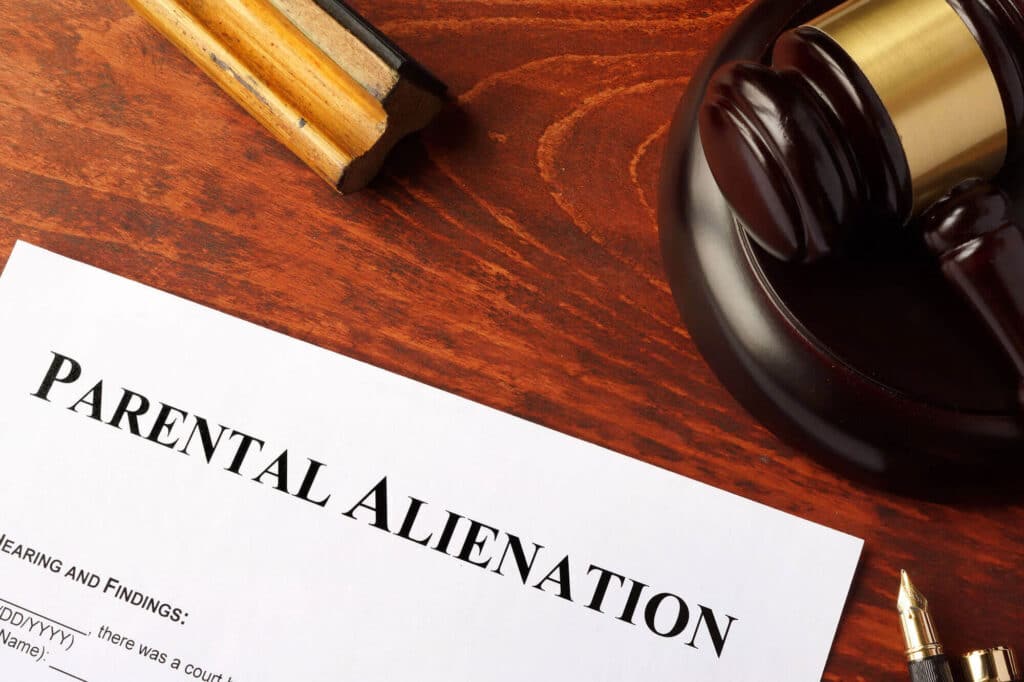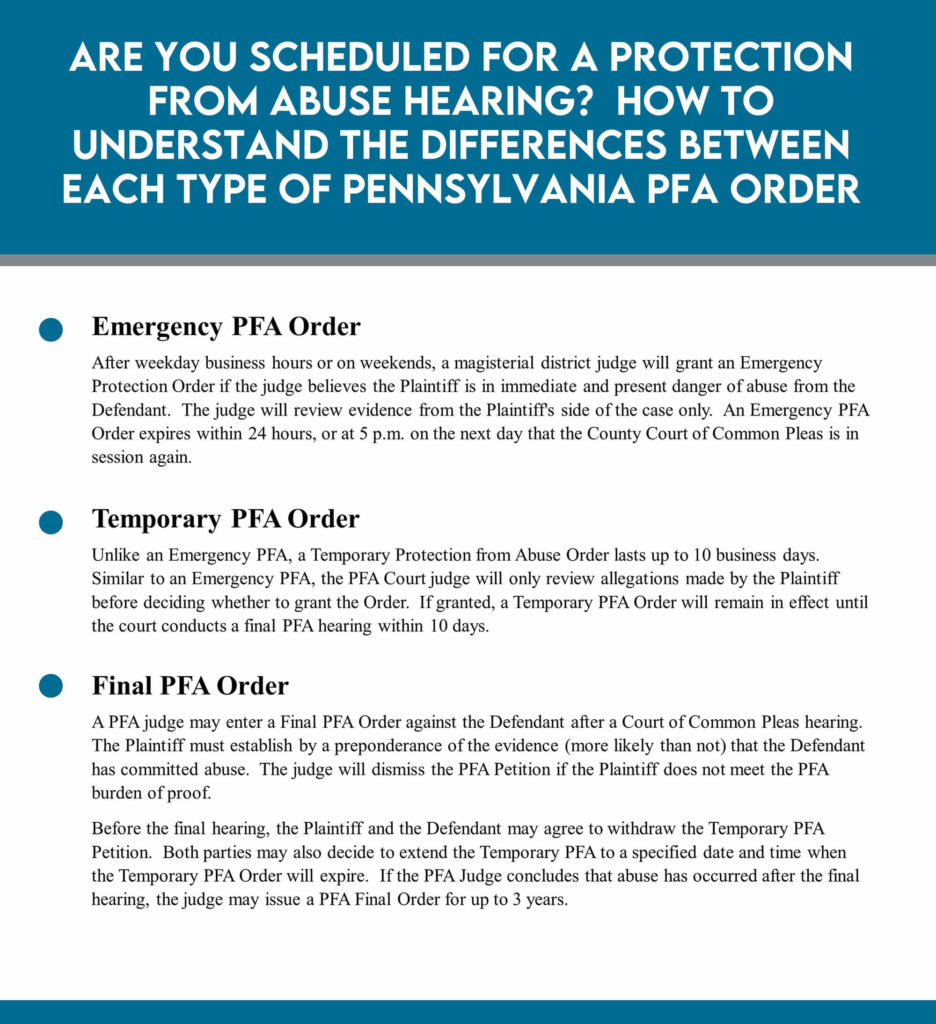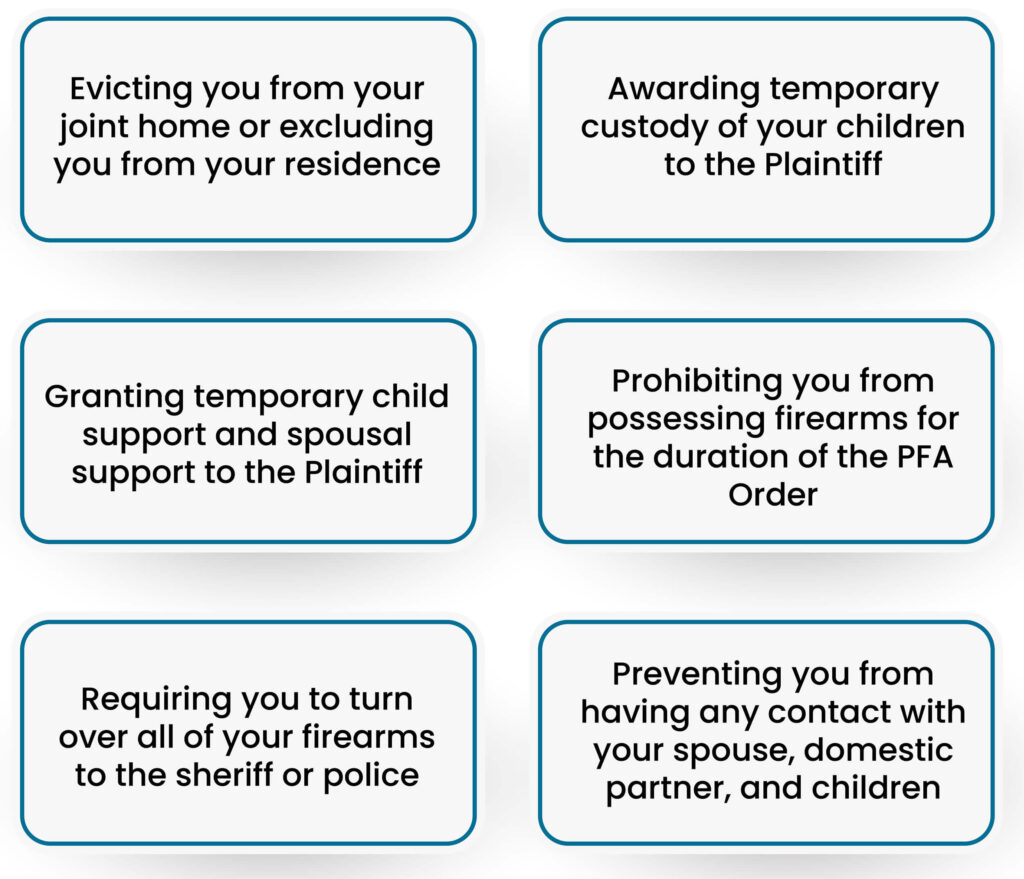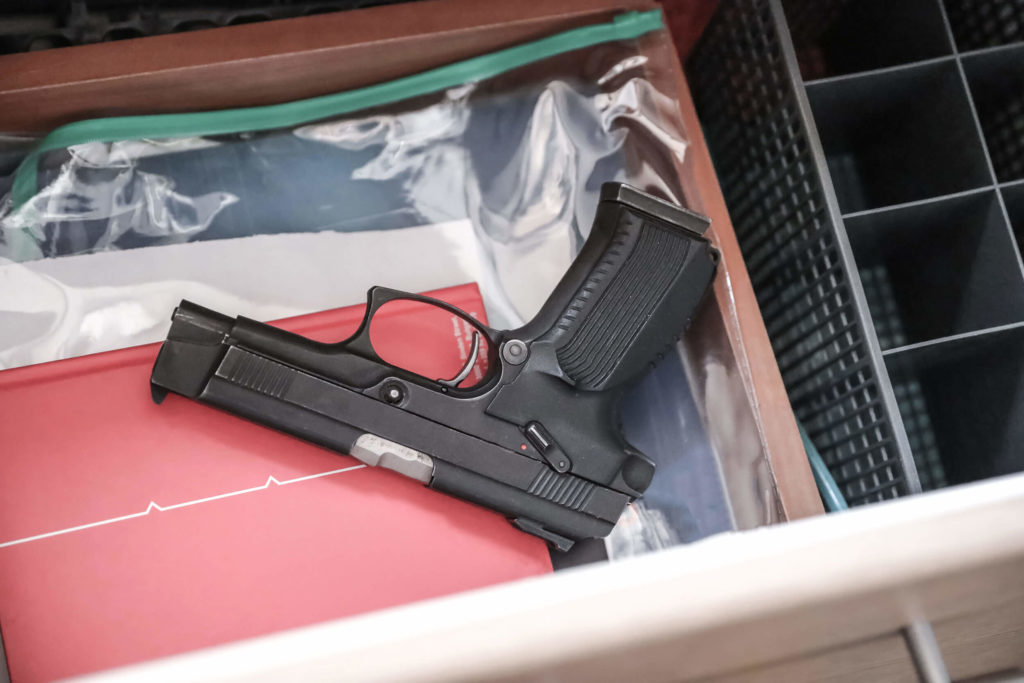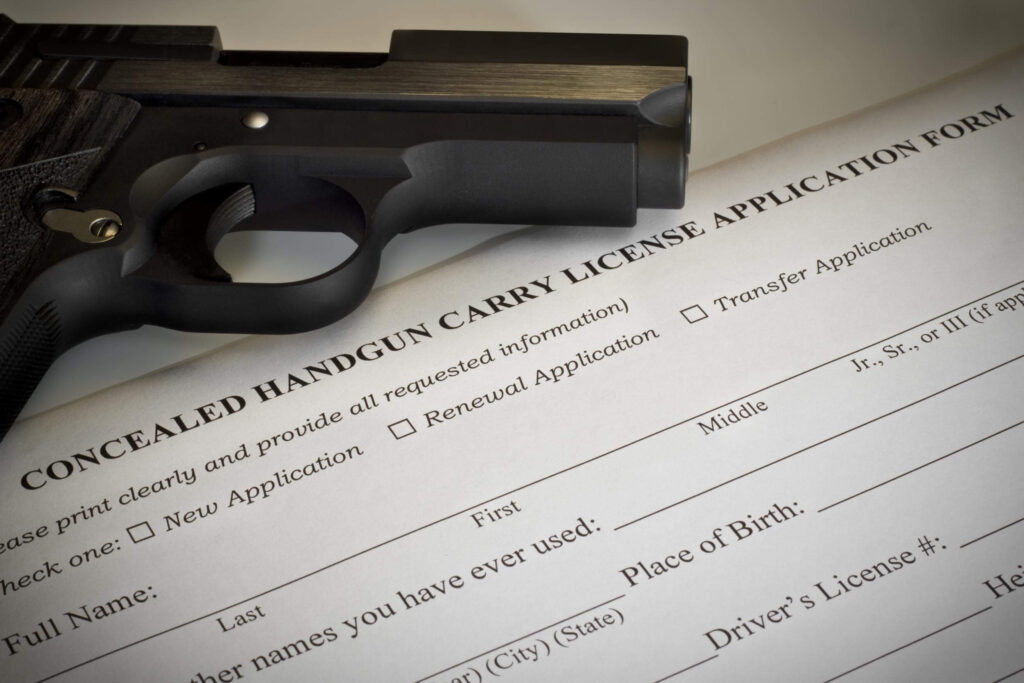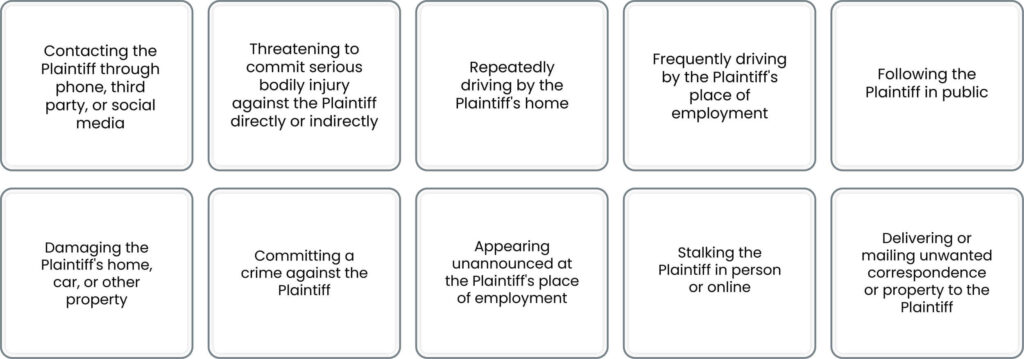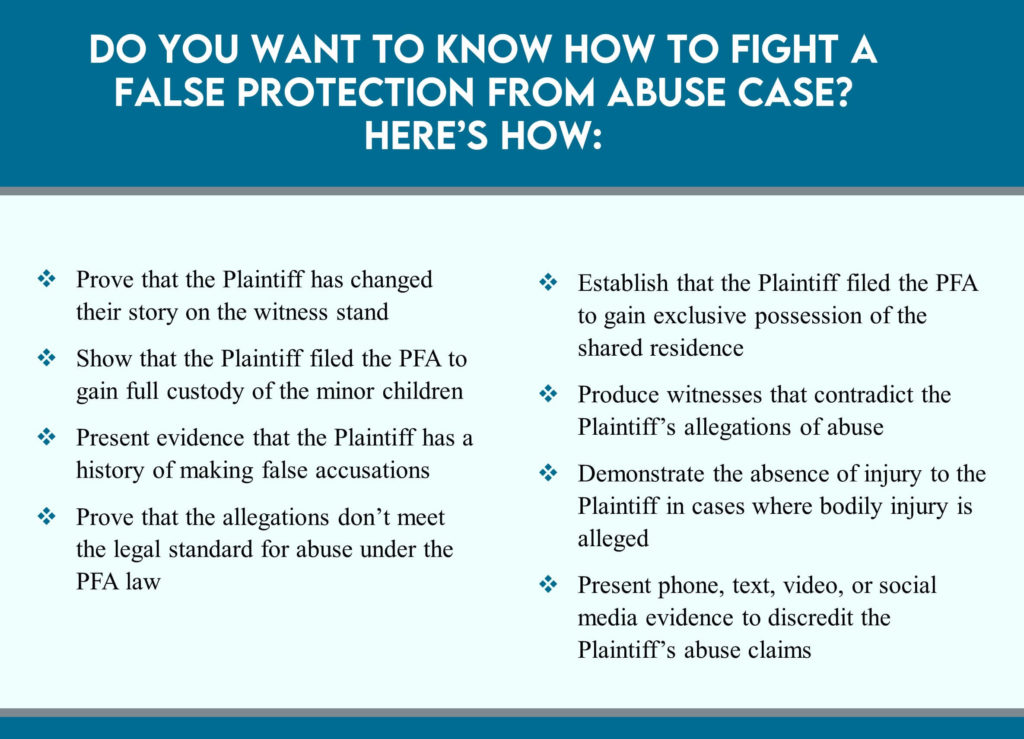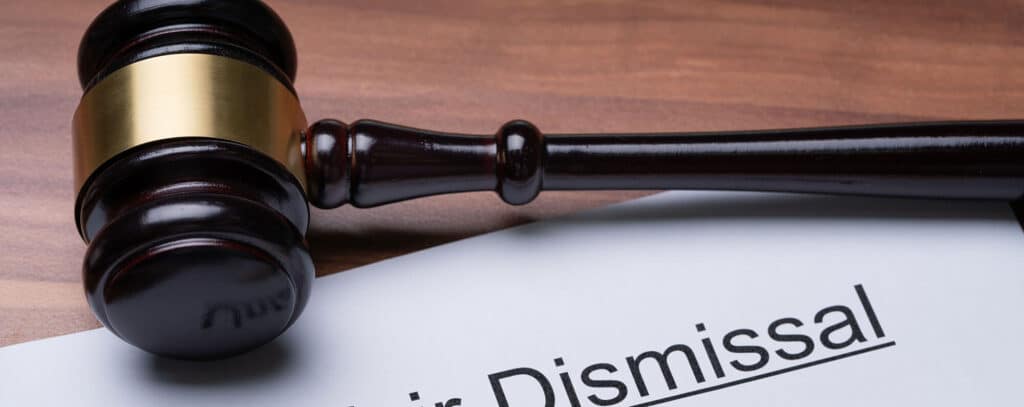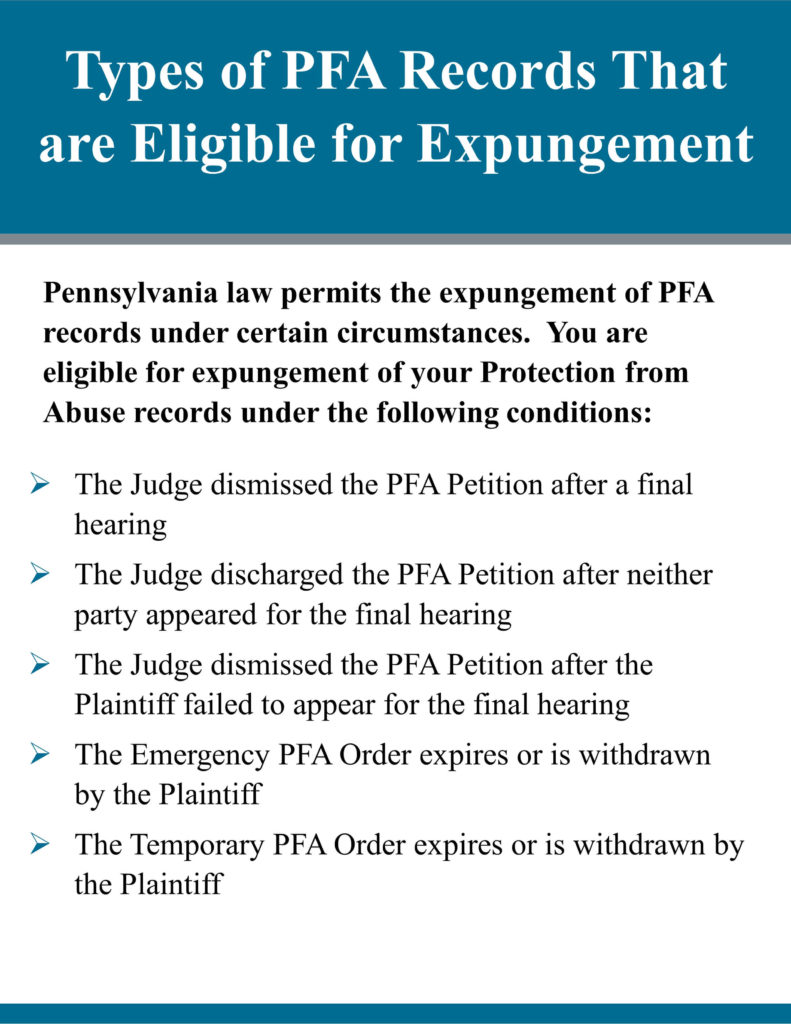
Domestic violence is a widespread problem in Pennsylvania and across the nation. Pennsylvania’s Protection from Abuse Act (PFA) law was passed in 1976 to address this serious issue. Unfortunately, being falsely accused of domestic violence through the PFA law can have devastating consequences for your life and future. Therefore, it is critical to have an aggressive PA Protection from Abuse (PFA) defense lawyer fighting for you in court.
What is a PFA?
One of the most common questions I receive is: what is a PFA order? Understanding the PFA legal meaning is critical.
A PFA (protection from abuse) petition is the name of a domestic violence protection order specific to Pennsylvania. In addition, under the PA PFA statute, a PFA can be issued by a family court judge or a magisterial district court judge.
Sometimes, the process begins when the court grants a Plaintiff an Emergency PFA. However, in most situations, the PFA hearings begin after a judge issues a temporary PFA.
Protection Order PA
What does a PFA do. A Protection from Abuse Order prevents the PFA Defendant from committing abuse against a domestic partner for the length of the order.
In addition, a PFA Order can require the Defendant to take specific actions, such as moving out of a marital home and turning over their firearms to law enforcement.
Order of Protection vs Restraining Order
I get many questions about the differences between a protective order vs restraining order. A family court judge issues an order of protection to protect a person from abuse from a family member, spouse, boyfriend, girlfriend, or domestic partner.
In contrast, a civil court judge can issue a Pennsylvania restraining order against anyone who poses a threat of violence or abuse against a person. Moreover, the person subject to the restraining order does not need a familial, marital, or domestic relationship with the Plaintiff.
In other words, a restraining order can be filed against a complete stranger to the Plaintiff.
Protection from Abuse Order PA
Wrongly accused of domestic violence. The police served you with a Bucks County PFA? Contact me for help fighting the case. I have extensive experience in the Bucks County Family Court helping individuals facing PFA false allegations.
Pennsylvania PFA Defense
The PFA Act has proven to be a practical resource for protecting domestic violence victims. A PFA Order is also known as a Pennsylvania Protection Order or Pennsylvania PFA.
Have you received a PFA with false allegations of abuse. I specialize in beating false domestic violence charges. Contact me at (215) 752-5282 for a free consultation to review your case.
Protection from Abuse Pennsylvania
Regrettably, a spouse or domestic partner can use false accusations of domestic abuse to manipulate the legal system to gain an advantage in Pennsylvania child custody hearings and divorce proceedings or to gain exclusive possession of a home.
If this happens, you should only consider hiring restraining order lawyers with experience in the suburban Philadelphia Counties. In some cases, a PFA Plaintiff will commit perjury during their testimony to support false PFA claims.
As a result, having an experienced Pennsylvania PFA attorney who knows how to fight a false PFA in PA. Have you been falsely accused of PFA domestic violence? Contact me at (215) 752-5282 as soon as the police or sheriff serve you with a PFA Petition.
PFA Fraud
Falsely Accused PFA
When a Plaintiff is lying on a PFA, it can have disastrous repercussions for the accused. In addition, a false accusation of domestic violence can often cause significant lifelong damage to your personal and professional reputation.
Furthermore, false PFA allegations can significantly impact your ability to work, obtain housing, and even visit your children. Unfortunately, individuals subject to a false PFA accusation may feel defenseless to fight back.
Your personal and professional future depends on your ability to successfully defend yourself against false accusations of abuse. Therefore, having a skilled Protection from Abuse attorney on your side is crucial if you suspect PFA fraud.
Penalty for Filing a False PFA in PA
A Plaintiff may file an untruthful PFA to gain an advantage in divorce proceedings, child custody matters, or to gain exclusive possession of the marital residence.
Depending on the evidence and circumstances of the case, the police could charge a Plaintiff who knowingly filed a false Protection from Abuse Petition with the following:
- Perjury (up to 7 years in prison)
- False swearing (up to 2 years in jail)
- Unsworn falsification (up to 2 years in jail)
- False reports to law enforcement (up to 2 years in jail)
Proving Perjury in a PFA Case
Winning your PFA case will make it more likely that the police will consider filing perjury charges against the Plaintiff. To prove perjury, you will need to establish all of the following:
- The Plaintiff made a false statement under oath during the PFA hearing
- The testimony was “material,” meaning that it could have affected the outcome of the proceeding
- The Plaintiff knew the statement was false at the time they made it
False PFA Pennsylvania
A PFA Defendant should acquire as much outside evidence as possible to corroborate that the Plaintiff filed a false PFA in PA or lied under oath during the PFA trial. If discovered, the perjury evidence should be provided to the police and district attorney.
A judge can impose a jail sentence if they conclude that the Plaintiff committed perjury in a PFA hearing. Unfortunately, the district attorney will not prosecute individuals who file fabricated PFA claims without substantial incriminating evidence.
Therefore, a PFA Defendant should not rely on the belief that the police will criminally charge a Plaintiff for filing a false PFA.
Instead, the Respondent in a PFA case should focus entirely on developing a convincing and comprehensive defense against the Plaintiff’s false claims.
How Do I Find Out What the Plaintiff Stated to the Judge at the Initial Ex Parte PFA Hearing?
What is an Ex Parte Hearing?
In the context of a Protection from Abuse Hearing, an ex parte hearing is the first hearing that takes place before a judge. After this hearing concludes, the judge decides whether to dismiss or grant a temporary protective order for the Plaintiff.
Only the Plaintiff is present, and the PFA judge only hears testimony and other evidence from the Plaintiff. This means the judge only hears one side of the incident.
The Defendant, the person against whom the petition is filed, is not present and does not have the opportunity to present evidence, testify, or otherwise challenge the Plaintiff’s allegations.
Why Should I Get the Ex Parte PFA Hearing Testimony?
Finding out what the Plaintiff said at the hearing is invaluable in preparing an effective legal defense against fraudulent and baseless PFA allegations.
By acquiring the testimony, you can discover any of the following:
- The Plaintiff willfully gave false testimony about a material matter in your case (perjury)
- The Plaintiff gave testimony that conflicts with allegations in the PFA Petition or evidence you possess
- The Plaintiff made false statements on matters not related to the PFA accusations (can be used to attack the credibility of the Plaintiff)
- The Plaintiff’s testimony and written allegations in the PFA Petition do not meet the legal standard for “abuse” as defined under the PFA Act
Remember, in almost every county, you have the right to order a copy of the testimony from the PFA Ex Parte Hearing from the court stenographer assigned to the ex parte proceeding. This access to evidence is crucial and a key component of your defense.
In addition, in Delaware County, you can order an electronic recording of the testimony from the hearing through the Delaware County Court of Common Pleas Electronic Recording Center.
The link to contact the Electronic Recording Center is: Electronic Recording Center – Delaware County Court of Common Pleas
PFA and Custody in PA
Unlike the factors considered during a typical Pennsylvania child custody hearing, a PFA Judge is not required to conduct a 16-factor best interests of the child analysis under the Pennsylvania Child Custody Act.
Does a PFA Override a Formal or Informal Custody Order?
Yes. A PFA judge may temporarily award the Plaintiff temporary legal and physical custody of a child listed as a protected person on the PFA petition. The judge may do so even if a custody order is in place.
To do so, the judge must conclude that the Defendant poses an immediate and present threat to the child or children identified as protected persons in the PFA Petition.
In some cases, there is no formal custody order between the Plaintiff and the Defendant. In that case, the custody order in the PFA will remain in effect until:
- A family court judge issues a custody order
- The PFA expires
- The Plaintiff withdraws the PFA
Also, the PFA judge may order the Defendant to pay temporary child support to the Plaintiff until the custody petition is decided through custody court.
PFA vs. Custody Court
Family court judges do not want child custody determined through a Protection from Abuse action. Fortunately, the Plaintiff and Defendant in an ongoing PFA matter usually agree that any subsequent custody court rulings will override the current custody provision in a temporary or Final PFA Petition.
Temporary PFA Orders Filed in Montgomery County, PA, Involving Children
A PFA judge in the Montgomery County PFA court will appoint an attorney from the Montgomery County Child Advocacy Project (MCAP) when the judge issues a temporary protection order that lists a child as a protected person.
The MCAP lawyer represents the child listed in the protection order. The MCAP lawyer will conduct an investigation of the Plaintiff’s allegations of child abuse. If applicable, the MCAP counsel will contact the police, child protective services, and Mission Kids forensic interview services.
The MCAP attorney will also interview the Plaintiff, Defendant, and any other necessary parties or witnesses. After the investigation, the MCAP representative will recommend to the PFA court whether the child should remain listed on the PFA Petition.
In many cases, the MCAP representative will recommend to the PFA judge that the child be removed from Temporary Protection from Abuse Order before the Final PFA Hearing.
What Happens if a Family Court Judge Enters a Custody Order after a PFA is Filed?
A family court judge may issue a formal custody order after a temporary or permanent PFA custody order. The Protection from Abuse Custody Order will override or replace the provisional child custody order in the PFA order.
In many cases, it is crucial for a Defendant in a PFA case to immediately file for custody in family court to ensure that they can maintain some contact with the child or children named in a PFA order.
Custody Factors PA
It is important to note that a finding of abuse by a PFA judge can significantly influence subsequent child custody proceedings. Furthermore, the protection of the health and safety of the child has now become the primary issue that the family court judge must consider in custody hearings, a change brought about by the passage of Kayden’s Law, which goes into effect on August 13, 2024.
Other PA child custody factors include:
Kaydens Law
Clients frequently ask me: What is Kaydens law. On April 15, 2024, Pennsylvania Governor Josh Shapiro signed Senate Bill Number 55 into law. The new statute is Kayden’s Law and became effective on August 13, 2024.
The new law dramatically changes the circumstances that a family court judge must consider when determining the custody of a child.
The significant changes to the PA custody factors under Kayden’s Law include the following:
- The child’s health and safety are now given the highest priority in custody decisions
- The law broadens the definition of abuse under current Pennsylvania custody law
- The statute amends the definition of “domestic violence” to the broader term: “domestic abuse” that includes acts which do not include physical violence, or even illegality
- The law substantially expands the list of criminal convictions (including simple assault) that may be considered by the court in custody decisions
- The statute requires the court to conduct an evidentiary hearing if there is evidence of an “ongoing risk of abuse” to the child
- At the hearing, the court may consider criminal convictions, criminal charges, any history of abuse, including a finding of abuse in PFA court, child abuse, and a parent’s involvement with child protective services
- If the custody judge concludes by a preponderance of the evidence that there is an ongoing risk of abuse of the child by a parent, there will be a rebuttable presumption that the court will only permit supervised physical custody between the child and the parent who presents the risk of abuse
- If the judge determines that there is an ongoing risk of abuse to the child by a parent, the law requires that the court favor professional supervised physical custody over non-professional supervised physical custody (parent’s family or friends)
- If accused of abuse, it will be difficult for most parents to overcome the presumption of an ongoing risk of abuse due to the very low evidentiary burden of proof required under the preponderance of evidence standard
- A parent who is deemed to be an abusive party by the court may be subject to supervised custody with the child until they can prove to the court that they no longer present a risk to the child’s safety
The full language of Kaydens Law PA can be found at Bill Information – Senate Bill 55; Regular Session 2023-2024 – PA General Assembly (state.pa.us)
As a result of the new law, you must hire an aggressive restraining order attorney to protect your child custody rights when the Plaintiff seeks custody through a Protection from Abuse Order.
The Main Takeaway of Kayden’s Law for a Person Served with a PFA
If a domestic partner files a Protection from Abuse asserting false domestic abuse claims against you and you have children together, if possible, you must take immediate steps to hire a lawyer. I can help you navigate the PFA court process and present your case effectively to prevent a finding of abuse by the court.
Options to avoid a judicial finding of abuse include:
- Present evidence to convince a judge to dismiss the PFA Petition after an evidentiary final hearing
- Reach an agreement with the Plaintiff to withdraw the PFA
- Negotiate a reasonable temporary extension of the Temporary PFA with a specified expiration date
- Agree to participate in counseling in exchange for a withdrawal of the PFA
Protection From Abuse Lawyer
Are you facing false accusations of domestic violence. Protection from abuse defense is a specialized area of family law. As a result, once the police or sheriff serve you with the order of protection, you will search for PFA lawyers near me.
Also, you should contact the best PA Protection from Abuse attorney to defend your case. Most importantly, I am one of the most experienced PFA lawyers in PA. I have over a decade of experience as a Bucks County PFA lawyer.
Above all, I provide skilled and aggressive legal representation to individuals facing allegations of abuse from an emergency or temporary PFA Order. Finally, I have a comprehensive understanding of the PFA laws in Pennsylvania. Contact me for a free evaluation of your case.
What is Considered Parental Interference
Parental interference commonly occurs in PFA cases. The following are examples of parental interference:
- Denying a parent their right to contact their child by phone, facetime, or other means
- Refusing to return a child to the other parent in violation of an informal or formal custody agreement
- Neglecting to inform the other parent of the significant academic, medical, legal, or personal development of a child
Protection From Abuse and Parental Alienation
Unfortunately, parental alienation is a common aspect of many protection from abuse cases. For example, the Plaintiff will often initiate parental alienation after a family court judge awards the primary physical of a child to the Plaintiff after a PFA is filed with the court.
After the court grants custody of the child through the protective order, the Plaintiff will manipulate or persuade the child to reject the Defendant (parent). Parental alienation tactics include:
- Isolating the child from the parent
- Encouraging the child to be angry or afraid of the parent
- Badmouthing or disparaging the other parent in the presence of the child
- Failing to share important information about the child with the parent (school, medical, activities)
Parental alienation is a form of parental interference. Unfortunately, interference with child custody is common in PFA cases. It should be addressed immediately by your lawyer and the PFA judge to prevent a parent or guardian from engaging in it.
I can discuss the strategies to bring a parent’s harmful parental alienation behaviors to the attention of the PFA court. Finally, the PFA judge is more likely to dismiss a PFA Petition filed to turn one parent against the other.
PFA Defendants Rights
Once the Sheriff or police serve you with PFA papers, your initial thought process is, how do I choose from the many PFA lawyers near me? First, you will need an aggressive PFA attorney to protect your rights, including your child custody rights.
Can I File A PFA Against the Plaintiff after the Police Serve Me with a PFA Order?
Yes, if you are the victim of abuse by the Plaintiff under the PFA statute. This is commonly referred to as cross-filing. When you cross-file, you fill out an application for a temporary PFA order against the Plaintiff at the family court prothonotary’s office in the court of common pleas in the county that you live in.
Suppose you file the PFA petition against the Plaintiff after business hours or on weekends. In that case, you will file the PFA paperwork and appear before the on-call magisterial district court judge.
The family court prothonotary staff will direct you to appear in person before a family court judge in an ex parte hearing if you file the petition in the county court. Ex parte hearing means that the Plaintiff will not be present, and the judge will not consider any evidence from the opposing party.
Among the factors that the PFA judge will consider before granting an emergency or temporary protective order against the Plaintiff are:
- Any delay in time from the date you filed your PFA and the date the Plaintiff filed their PFA
- The severity of the abuse you allege in the petition
- Any corroborating documentation you have of the alleged abuse (photographs of injuries, text messages, voicemails)
- Whether the Plaintiff threatened you with a handgun, rifle, or another dangerous weapon
Sometimes, the PFA judge will deny a temporary PFA but will schedule a PFA hearing that the Plaintiff will be required to attend. At that hearing, the Plaintiff must answer to the allegations of abuse outlined in your PFA petition.
How Do I Get my Property if the PFA Includes an Eviction Order?
Unfortunately, many people are completely blindsided when the sheriff or local police serves them with a PFA Order that includes eviction from their residence. You have personal items, clothing, and other valuable property at the residence of the Plaintiff.
Initially, you must contact the local police to arrange a police escort or civil standby to retrieve some personal items such as clothing, shoes, medication, and a toothbrush. The police will contact the Plaintiff to arrange a date and time to retrieve your belongings. Also, the Plaintiff must consent to the property pickup.
The ownership of the property cannot be in dispute. The police typically give you 15 to 20 minutes to retrieve personal items from the Plaintiff’s residence.
On the date of the PFA hearing, both sides may agree to the terms of the return of any undisputed property of the Defendant. For example, the Plaintiff may leave the Defendant’s property at a specific location inside or outside the home on a mutually agreed upon date and time.
The parties may decide whether property retrieval can occur with or without police presence.
Doylestown PFA Lawyer

Bucks County PFA Court, Doylestown, PA, 5th floor.
No Contact Order PA
Searching for a protection order attorney near me? Because my main office is in Bucks County, Pennsylvania, I have handled hundreds of PFA cases filed in Bucks County PFA Court in Doylestown, Pennsylvania. Most importantly, I know the local PFA Plaintiff attorneys, PFA judges, and Bucks County court procedures.
In addition, my PFA Defense practice covers Montgomery County, Chester County, Delaware County, and the nearby Pennsylvania Counties.
Contact me at (215) 752-5282 for a free initial PFA consultation, or fill out the confidential contact form for an immediate response. Appointments are available after business hours and on weekends.
Who can get a PFA in Pennsylvania?
You must be an adult household member or any other adult or guardian on behalf of a minor child and be one of the following:
-
- Current or former spouse
- Parent
- Child
- Family member or intimate partner
- Former intimate partner
- Others who are related by blood or marriage
- Same-sex couple
- Mixed-sex couple
Pennsylvania lawmakers intended for the PFA Act to cover familial and domestic relationships. Finally, the PFA law covers current relationships as well as past relationships.
You May be Surprised to Learn that the PFA Act Covers the Following Persons:
- Siblings (you share one or both parents)
- Brother-in-law
- Sister-in-law
- Spouses of your spouse’s siblings
Where can a Pennsylvania PFA be Filed?
A Plaintiff may file a Protection from Abuse Action in Bucks County, Montgomery County, or any other Pennsylvania County if that county is:
- Where the Plaintiff lives
- Where the Plaintiff is employed
- Where the Defendant may be served with the PFA Petition
- Where the alleged abuse occurred
- Where the Plaintiff lives if the Plaintiff requests exclusive possession of the residence
How Long Does a PFA Last in PA?
Many of my clients ask: How long do protective orders last? Under the Pennsylvania Protection from Abuse Act, a judge can order that a PFA be in place for up to 3 years.
Also, the PFA court can extend or restart the PFA Order for 3 years each time the judge finds that the Defendant violated the original protection order.
In practical terms, a PFA judge could extend the first PFA Order for many years beyond the expiration of the original PFA petition. Therefore, contacting a skillful PFA violation lawyer is imperative if the police charge you with indirect criminal contempt of a PFA Order.
Grounds for a PFA
What evidence is necessary for a Plaintiff to get a permanent domestic violence order of protection? To have grounds for a final PFA in PA, the Plaintiff will need to convince a judge by a preponderance of the evidence that you committed abuse in any of the following ways:
- You caused or attempted to cause bodily injury or serious bodily injury to the Plaintiff
- You perpetrated physical or sexual abuse on a minor child
- You committed rape, involuntary deviate sexual intercourse, sexual assault, statutory sexual assault, aggravated indecent assault, indecent assault, or incest against the Plaintiff
- You placed the Plaintiff in reasonable fear of imminent serious bodily injury
- You followed the Plaintiff (stalking) or repeatedly committed other acts (course of conduct) that caused the Plaintiff to have a credible fear of bodily injury
- You interfered with the Plaintiff’s freedom of movement (e.g., false imprisonment)
Can You Get a PFA for Verbal Abuse?
It depends on the circumstances. For example, a common question clients ask me is: Can you get a PFA for emotional abuse? Using abusive or vulgar language towards a spouse, girlfriend, or domestic partner during an argument or custody transfer of a child is not PFA abuse.
However, threatening physical harm or death to a girlfriend or repeatedly contacting a domestic partner with no legitimate purpose is considered abuse under the PFA Act.
What Happens When a PFA is Filed?
A Pennsylvania Common Pleas or magisterial district court judge will review the Plaintiff’s allegations of abuse outlined in the PFA Petition. Unfortunately, the judge does not consider any evidence from the Defendant’s side, even if it would disprove the Plaintiff’s accusations.
Suppose a Magisterial District Judge grants a PFA after business hours or on weekends. In that case, the temporary PFA Order will typically expire on the next business day the County Court of Common Pleas is open.
The district court judge will give the Plaintiff instructions to re-apply for a protection from abuse order with the family court on the next date the county court is in session.
If the judge grants a temporary PFA Order, the Plaintiff, police, sheriff, or responsible adult will serve you with the following:
- The Temporary PFA Order (includes the names of the protected party or parties)
- The PFA Petition (including specific allegations of abuse)
- A Notice to Appear in Court (Final Hearing: date, time, and courtroom number)
The local police will serve the Defendant with the Protection from Abuse Order if the PFA contains an eviction order. Otherwise, the county sheriff’s department will deliver the protection order to the Defendant. One of your initial questions may be: What is a PFA hearing?
Do You Need a Lawyer for a PFA Hearing?
Yes. One of the most common questions I receive from clients who receive a PFA court notice is: Do I need a lawyer for a PFA hearing? Unfortunately, defending yourself at a PFA hearing can have disastrous consequences.
Unfortunately, most non-lawyers will need help understanding the PFA court hearing procedures and the rules of evidence applied during the hearing.
In addition, a lack of understanding of court rules and the inability to make persuasive legal arguments can make winning your case before the judge difficult. Some Pennsylvania Counties may provide a pro bono lawyer for individuals without legal representation.
In most cases, you will meet the lawyer for the first time on the day of the PFA hearing. As a result, you will not get the best result in the case.
How Do I Choose Between a Family Law Attorney and a Criminal Law Attorney for a PFA Case?
Criminal defense lawyers are experienced in working within tight deadlines and under extreme pressure. If a criminal lawyer loses a case, their client may go to prison for years, or in some cases, decades.
One of the primary attributes that a criminal defense attorney possesses is the ability to aggressively and effectively cross-examine hostile witnesses. This skill is not just important, it’s critical in winning contested PFA hearings.
In contrast, family lawyers litigate child custody, divorce, spousal support, and distribution of marital assets, among other things. Although all of these matters are important, it’s important to note that none carry the risk of imprisonment if the attorney loses the case.
My legal background is almost entirely in criminal defense. You can read about my professional experience on my Attorney Profile page. If you’re still unsure about which type of lawyer to choose for your PFA case, I encourage you to contact me at (215) 752-5282 for a free discussion of your case.
PFA Continuance
The PFA judge will schedule an evidentiary hearing to decide if the temporary PFA becomes permanent within 10 days after the judge signs the temporary PFA. Unfortunately, the Pennsylvania PFA Law does not provide a Defendant with enough time to prepare to defend themselves before the final PFA hearing.
In many situations, a PFA defendant will be served the PFA hearing notice less than 3 or 4 days before the PFA trial. Therefore, contacting an experienced PFA family lawyer when the sheriff, police, or civilian serves you with a PFA is critical.
Fortunately, in most cases, a family court judge will grant a PFA continuance on behalf of a defendant for the following reasons:
- The PFA Defendant needs to retain a lawyer
- The PFA Defendant’s lawyer needs to complete a defense investigation
- The lawyer for the PFA Defendant and the lawyer for the PFA Plaintiff needs additional time to try to reach an agreement regarding the PFA
What are the Consequences of a Finding of Abuse?
The PFA Judge has broad discretion in imposing conditions upon a person the judge has found to have committed abuse. These conditions can include the following:
Placement of the Protection Order in the PA State Police Registry
Once the Final PFA Order is issued, law enforcement officials will place the protective order in the Pennsylvania State Police Registry.
Once the police enter the protection order into the Protection from Abuse database, it is enforceable anywhere in Pennsylvania, tribal lands, United States territories, and the 49 states outside Pennsylvania.
All current and potential employers and others conducting background checks will have access to the protection order registry.
PFA Mandatory Firearms Relinquishment
Can a Judge Order the Defendant to Turn Over Firearms as Part of a Temporary PFA Order?
Yes. A PFA judge may order the Defendant to surrender all firearms, other weapons, and ammunition as part of a temporary PFA under the following circumstances:
- The Plaintiff alleges abuse involving a firearm; or
- The Plaintiff alleges an immediate and present danger of abuse
A Defendant has 24 hours to transfer firearms, weapons, and ammunition if the judge orders a firearm relinquishment as part of a temporary PFA. In addition, the Defendant is not permitted to turn over firearms to family members or friends.
Also, the judge must order the Defendant to hand over all firearms, other weapons, and ammunition within 24 hours if the court enters a final PFA Order against the Defendant after a contested hearing.
Firearm Surrender Outside of the County Where the PFA is Filed
If you surrender your firearm to a law enforcement agency outside the county where the PFA is filed, you must provide receipt of the firearm turnover to the Sheriff in the county where the Plaintiff filed the PFA.
Can the Police Charge Me with a Crime if I do Not Turn Over My Firearms?
Yes. The police can charge you with a second-degree misdemeanor crime punishable by up to two years in jail if you do not comply with a court order to relinquish firearms.
Suppose a court convicts you of failing to relinquish your firearms. In that case, the judge will ban you from possessing, owning, or acquiring a firearm for 5 years from the end of your sentence, including a jail sentence or the end of probation or parole.
Where Can a Defendant Turn Over Firearms Under the PFA Law?
- The county Sheriff’s Department
- The local police department
- A licensed firearms dealer
- A commercial armory
- An attorney with whom the Defendant shares an attorney-client relationship
What if I Possess a Concealed Carry Permit?
In Montgomery County, Bucks County, and other counties in Pennsylvania, the sheriff will mail a concealed carry permit relinquishment letter to all PFA Defendants even if the person never applied for or possessed a concealed carry weapon.
However, a Final Protection from Abuse Order entered by the Plaintiff and Defendant does not automatically trigger a permanent automatic weapons relinquishment under Pennsylvania law.
PFA and Federal Law
Unfortunately, a Final PFA Order is considered a “qualifying protective order” under federal law disqualifying the Defendant from acquiring or possessing a firearm for the duration of the order.
Nonetheless, the PFA Judge can order a mandatory firearm, other weapons, and ammunition relinquishment in cases involving a PFA resolved through an agreement between the Plaintiff and the Defendant. For these reasons, you need an experienced Protection from Abuse lawyer to preserve your lawful gun rights.
Can there be a PFA Violation by Plaintiff?
No. The conditions and requirements of the Emergency, Temporary, or Final Pennsylvania PFA Order apply only to the Defendant (also referred to as the Respondent).
However, a PFA Defendant has the right to file a police report and request that the police file criminal charges against a PFA Plaintiff if they commit a criminal act against the Defendant.
In addition, a PFA Defendant can file for an emergency or temporary protection order against a PFA Plaintiff who engages in acts of abuse against the Defendant or the Defendant’s children.
What is Considered a Violation of a PFA?
One of most frequent questions I receive is: What is a PFA violation? The Plaintiff can accuse the Defendant of a PFA violation in PA if the Defendant violates any conditions of any existing PFA Order.
The PFA judge will not rule that the protection order has been breached for minor infractions. A violation of PFA in PA includes:
What is a 3rd Party PFA Violation?
A third-party PFA violation occurs when a person or persons acting on behalf of a PFA Defendant threaten, contact, harass, or physically abuse the Plaintiff. Notably, there must be an existing Protection from Abuse Order in place against the Defendant when this conduct occurs.
The police or the PFA Plaintiff may file charges for indirect criminal contempt if they allege that the PFA Respondent is violating the PFA court order through the actions of a third party.
PFA Violation
Many clients ask me: what happens if you violate a PFA in PA. In most cases, the police arrest individuals accused of violating a Final PFA Order. As a result, the family court prothonotary will schedule a hearing before a judge to determine whether the Defendant is in indirect criminal contempt (ICC) of the Final PFA Order.
Unfortunately, an innocent phone call, text message, or social media post often results in the police or Plaintiff filing PFA violation charges.
In other instances, the police will make an arrest based on the accuser’s allegation alone, even if it is not truthful. Fortunately, I have extensive experience in PFA contempt hearings. But most importantly, I will fight to keep you out of jail if the Plaintiff accuses you of violating a Final PFA Order.
Indirect Criminal Contempt PA
A charge for violation of a PFA in PA is considered a criminal matter, carrying severe penalties, including a potential jail sentence of up to 6 months.
At the Protection from Abuse Contempt Hearing, a prosecutor must present evidence before a judge to establish beyond a reasonable doubt that the Defendant violated the Final PFA Order.
Also, the Defendant’s testimony and other exculpatory evidence can often defeat a false PFA violation allegation. Therefore, I will prepare the most effective defense strategy to win a dismissal of the PFA Violation Petition.
Can the Judge Find Me in Contempt of a PFA Order for a Technical Violation?
No. The PFA judge would not rule that you are in contempt of the PFA Order if you have committed a mere technical violation of a provision or condition of the PFA Petition. An example is speaking to the Plaintiff about a neutral subject in person or by phone.
A judge will dismiss a Petition for Indirect Criminal Contempt of a PFA if the alleged communication is:
- Minor or insignificant
- Non-threatening
- Not made with the intent to abuse, harass or stalk the Plaintiff
Furthermore, the prosecutor must convince the judge that you acted with a wrongful intent to violate the court order to satisfy the burden of proof in a PFA contempt hearing. To prove wrongful intent, the district attorney must prove that you acted deliberately with the knowledge that they were violating the conditions of the PFA Order.
Montgomery County PA PFA Indirect Criminal Contempt Hearings

Montgomery County PFA Court, One Montgomery Plaza, Courtroom 18, 9th Floor
Often, the Montgomery County District Attorney will agree to delay prosecuting a protection order violation. In a “wait and see” agreement, the Defendant must request a 90-day continuance of the PFA contempt hearing.
If the judge grants the continuance, the Defendant must comply with the PFA Order and any special conditions requested by the District Attorney. The prosecutor will withdraw the PFA Contempt Petition if the Defendant abides by all the agreement provisions during the 90 days.
What are the Penalties for a PFA Violation in PA?
- A fine of at least $300 and up to $1,000 (for each violation)
- Up to 6 months in jail (for each violation)
- Extension of the PFA Order for up to 3 years
Outside of these penalties, violating a Final PFA Order can significantly affect the status of any criminal case pending against you. Also, individuals violating a PFA Order will often face separate charges in criminal court related to the same incident.
I have extensive experience successfully defending individuals who are simultaneously facing criminal charges and charges for violation of a Final PFA Order involving the same incident.
Can the Plaintiff Request a PFA Extension even if I Have Not Violated the PFA?
Yes. Under limited circumstances, a Plaintiff or an adult on behalf of a minor child may ask a PFA judge to extend a permanent PFA beyond its expiration date in the following circumstances:
- The Plaintiff alleges that the Defendant committed one or more acts of abuse since the entry of the PFA Order
- The Defendant has engaged in a pattern of behavior that indicates a continued risk of harm to the Plaintiff or the minor child
- A hearing for contempt of the PFA Petition will not occur before the expiration of the PFA Order
- The Defendant is in custody or will be released from custody within 90 days of the filing of the PFA Extension Petition
It is essential to understand that the Plaintiff is not required to allege or prove that the Defendant is in contempt of an existing PFA Final Order to request the extension of an expiring Pennsylvania protective order.
Because of this, I work vigorously to prevent a PFA extension if the Plaintiff files for an extension of an existing PFA Order.
PFA Montgomery County PA

Montgomery County PFA Court in Norristown, PA
How to Beat a False Restraining Order
I know how to fight a false order of protection. First, I will thoroughly investigate the facts and circumstances of your case to develop the most potent defense against the allegations in the PFA Petition.
A comprehensive investigation will often require that we retain a private investigator. An investigator can subpoena witnesses and records to help prove that the accusations are made up.
Am I Entitled to Discovery in a PFA Case?
No. Unfortunately, there is no right to discovery in a PFA proceeding. Therefore, the Plaintiff is not required to provide the Defendant with any evidence in PFA court. As a result, it is up to you, your lawyer, and a private investigator to gather any evidence needed to convince the judge to dismiss the protection order.
How to Prepare for a PFA Hearing
My professional network includes many highly skilled independent defense investigators. The defense investigator will interview and subpoena all necessary witnesses for the Final PFA hearing.
In addition, the private investigator will examine and acquire various records that contradict the accuser’s version of events, including the following:
- Geo-location data
- Text messages from the accuser
- Medical records of the Plaintiff or the Defendant
- Residential (including Ring home security video) or business video surveillance
- Social media records of the accuser
Does your PFA Petition involve evidence from a cellphone? Review How to Use Cellphone Evidence to Win Your Criminal Case for tips on using this type of evidence in your defense at a PFA hearing.
I will meet with you to review the evidence in the case and discuss our defense strategies. Also, I will spend significant time preparing you to testify in court. In addition, you will be fully prepared for the questions the Plaintiff’s lawyer will ask you.
Finally, pre-trial preparation is critical in mounting a successful defense against a false PFA petition.
How to Get a PFA Dismissed
As an experienced family law attorney, I have over a decade of experience defending individuals facing a Protection from Abuse Final Hearing. In addition, I fight for the rights of people accused of violating an existing PFA Order.
Through my broad criminal defense experience, I have developed the ability to discredit the testimony of the opposing party’s witnesses through intensive cross-examination.
How to Fight a PFA in PA
I am also skilled at exploiting the weaknesses in the opposing party’s case during a PFA hearing in PA. You should ask the following questions:
- Did the Plaintiff make a police report for each allegation in the PFA?
- Can the Plaintiff explain why the police never filed charges for the alleged abuse?
- Did the Plaintiff produce medical records or photographs to corroborate alleged injuries?
- Why doesn’t the Plaintiff have any witnesses to the alleged acts of abuse?
- Why did the Plaintiff wait to file the PFA?
The PFA judge may dismiss the Plaintiff’s Petition if some or all of these factors are present.
Can I Appeal a PFA Order in PA?
Yes. In some cases, it is essential to appeal the final ruling of the family court PFA judge to protect your rights and to correct factual or legal mistakes made by the court. A PFA Defendant has 10 days to file a Motion for Reconsideration of the final PFA ruling.
Also, you must file a Notice of Appeal of the PFA decision to the Pennsylvania Superior Court within 30 days of the date of the formal decision on the PFA Petition.
A PFA Defendant should file the appeal of the Final PFA Ruling to the Pennsylvania Superior Court within the 30-day deadline. Notably, the Defendant should file the appeal within the 30-day deadline even when the Respondent requests a reconsideration of the Judge’s PFA decision.
If the PFA appeal is successful, the state appellate court may dismiss the PFA Petition, order a new PFA hearing, or grant other forms of relief. I can analyze the records of your PFA hearing to determine if you have grounds for a successful PFA appeal.
Does a PFA Show up on a Background Check?
Yes. Although a civil PFA record will not appear on a criminal background check, it will remain accessible in the civil court records of the case.
Even unsubstantiated or false PFA filings may be attainable through the civil court record system for employment or another professional background check. However, a conviction for violating a PFA Order, often called indirect criminal contempt, will appear on a criminal background check.
Does a PFA Go on Your Record?
Yes. The issuance of an Emergency PFA Order or Temporary PFA Order can significantly damage your personal and professional reputation. Also, employers, landlords, and government agency officials can discover PFA records in publicly accessible civil court dockets and other databases.
Unfortunately, employers and others who find the PFA court records will often use them to deny you employment, professional licensing, or professional certification.
Therefore, it is important to petition the court to expunge your PFA records if you are eligible under Pennsylvania law. I can explain the Pennsylvania PFA record expungement process to you and determine if your PFA case records qualify to be expunged.
How to Expunge a PFA in PA
Experienced Representation for the PFA Expungement Process
Under Pennsylvania law, the right to expunge a PFA record is not automatic. Therefore, in deciding whether to grant a Protection from Abuse Expungement, the court will consider the following factors:
- The age of the Petitioner
- The circumstances of the case
- The hardship caused to the Petitioner by the existence of the PFA Record
- The prosecutor’s reasons for preserving the PFA Records
I have considerable experience successfully assisting individuals in the PFA expungement process. As a result, I can determine whether you are eligible to have your Protection from Abuse records expunged.
How to Drop a PFA in PA
Clients frequently ask me for advice on how to get a PFA dropped in PA. Unfortunately, a Final PFA Order can last as long as 3 years. In addition, some temporary PFAs can last for 6 months or longer if both parties reach an agreement.
However, there are often circumstances under which the Plaintiff and the Defendant might want a temporary or permanent Pennsylvania Restraining Order withdrawn. In many cases, the parties to the PFA Petition have decided to reconcile after the court entered the original PFA Order.
Notably, the Plaintiff has the authority to request that the PFA judge withdraw their PFA Petition after filing it but before the final hearing.
Each Pennsylvania County has policies and procedures for how to withdraw a PFA in PA. In Bucks County, Montgomery County, Chester County, and Delaware County, PA, the Plaintiff can withdraw a Temporary or Emergency Protective Order in PFA Court without filing a Motion to Vacate PFA.
In contrast, most counties require the Plaintiff to file a Petition to Withdraw PFA if the judge orders a final PFA Order. After the Plaintiff files the petition, the PFA judge will conduct a hearing to determine if there are appropriate reasons for canceling the Permanent Protective Order.
What is the Legal Standard for Vacating a Temporary or Final PFA Order?
To vacate the PFA, the Plaintiff must convince the PFA judge that the Defendant no longer poses a threat of abuse. Secondly, the Plaintiff must demonstrate that the PFA withdrawal request is not the result of pressure, threats, or coercion by the Defendant or others.
The PFA judge will deny the Petition if the Petitioner does not satisfy both conditions. As a result, the existing Final PFA Order will remain in place. Do you need advice on how to drop a temporary PFA in PA? I
I can assist you with the court process and procedure to convince the Judge to cancel the PFA Order.
Domestic Abuse Lawyer
The sheriff or police just handed you with a PFA based on lies and exaggerations. Your first thought is, how do I choose from the many local restraining order lawyers near me? If that is the case, contact me as soon as possible. I will help you understand how to fight a PFA.
My practice area includes Bucks County, Montgomery County, and surrounding Pennsylvania Counties. I will actively protect your rights and begin building the most effective defense against the Plaintiff’s false PFA allegations.
Phone lines are open 24 hours a day at (215) 752-5282. Contact me for a free initial consultation, or fill out the confidential contact form for an immediate response.
